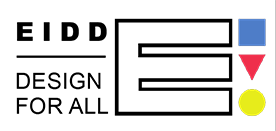– Work for All
EIDD Annual Conference, 18-19 May 2006
The Waterford Convention
“Equality of dignity is not a matter of assistance or welfare, but a matter of rights, enabling instruments and enabling policies.”
“We live in the knowledge age, when unemployment is a structural system maladjustment… but our attitudes about work are geared to the industrial and service age.”
“Migrant workers trade economic advantage for social exclusion.”
“Exclusion is a moving target.”
“A more Design for All-oriented approach can obviate the need for costly legislative intervention.”
The participants in the International Conference “Work for All”, held in Woodlands Hotel, Waterford, on 18-19 May 2006,
- Reiterating the right proclaimed in Article 23.1 of the Universal Declaration of Human Rights, 1948, which reads: ”Everyone has the right to work, to free choice of employment, to just and favourable conditions of work and to protection against unemployment”, together with its repetition in Article 6 of the International Covenant on Economic, Social and Cultural Rights, 1966, and in ILO Convention N° 111 on Discrimination (Employment and Occupation), 1958;
- Referring to the United Nations Standard Rules on the Equalisation of Opportunities for Persons with Disabilities, adopted by the General Assembly in 1993;
- Considering the European Council Directive 2000/78/EC establishing a general framework for equal treatment in employment and occupation, adopted on 27 November 2003;
- Welcoming the position adopted in the European Constitution, Part III, Chapter III, Section 2, “Social Policy”, Article III-210;
- Having studied the implications of the application of Design for All to the following aspects to Work: 1) Enabling Interfaces; 2) Enabling Environments; 3) Enabling Processes 4) Enabling Society;
- Insisting on the vital importance of a seamless rather than a sectoral approach to social inclusion;
- Concerned by the emphasis being placed in the revised version of the Lisbon Agenda on Europe as a dynamic, competitive knowledge economy, to the apparent detriment of the stipulation for improved employment and social cohesion;
- Convinced of the significance of Design for All as a tool for achieving a thriving society based on human diversity, social inclusion and equality and reiterating the principles enshrined in the EIDD Stockholm Declaration©, adopted on 9 May 2004;
- Declare that Design for All creates the conditions for everyone to be able to take an active, productive part in the economy, at the same time cutting social costs;
- Propose that Design for All constitute one of the “policies and techniques to achieve steady economic, social and cultural development and full and productive employment” quoted in Article 6.2 of the International Covenant on Economic, Social and Cultural Rights as incumbent on States Parties to the Convention;
- Invite all economic, social and political organisations, both private and public, at local, regional, national, continental and international levels, to make every effort to factor the theory and practice of Design for All into their policies and activities of enterprise, employment and self-employment as a horizontal, interdisciplinary practice;
- Call on the European institutions to create and augment funding headings, both under the Seventh Framework Programme and elsewhere, to be tailored specifically to researching, developing, implementing, showcasing and disseminating methods of social inclusion in work achieved by means of Design for All;
- Call on the European institutions to assist in establishing a European Standing Conference on the Implementation of Design for All in Work, to meet once every four years and act as a forum for collecting best practices from the widest possible range of actors in the design, enterprise and work communities and showcasing them to interested audiences from all over the world;
- Commit to publishing and disseminating this Convention to their own communities.
This Waterford Convention has been sent to:
- The European Commissioner for Employment, Social Affairs and Equal Opportunities
- The Council of Europe
- UNESCO
- ILO
- The leaders of the political groups in the European Parliament
- National Ministers of Industry and Employment
- European Trade Unions
- European Employer Associations
- European Associations of the Self-Employed
- and other stakeholders.

